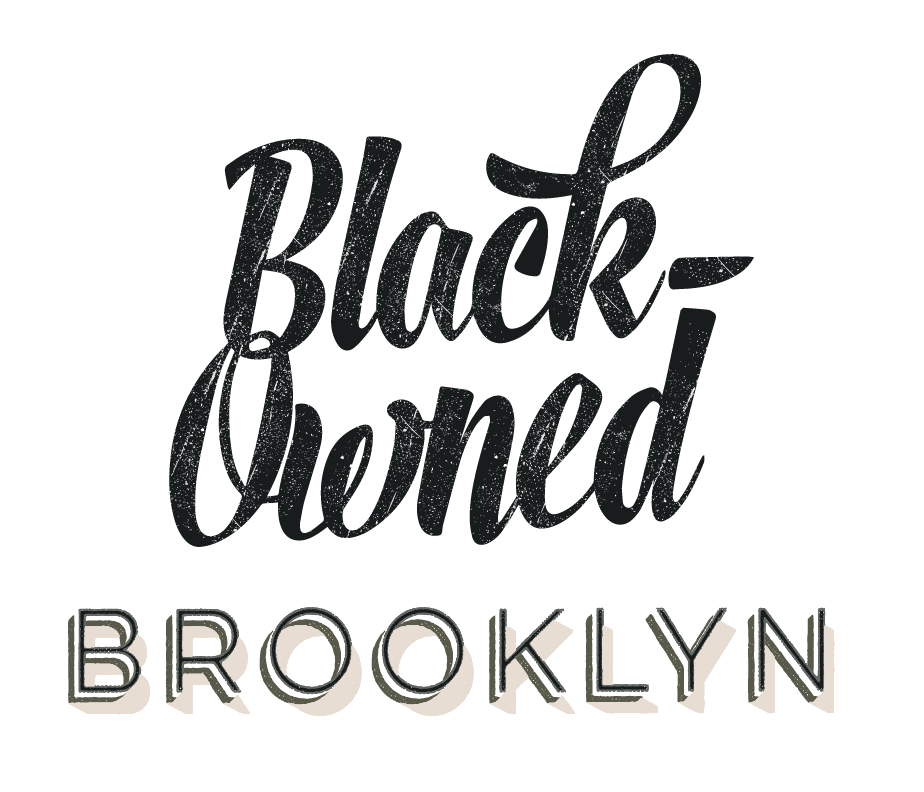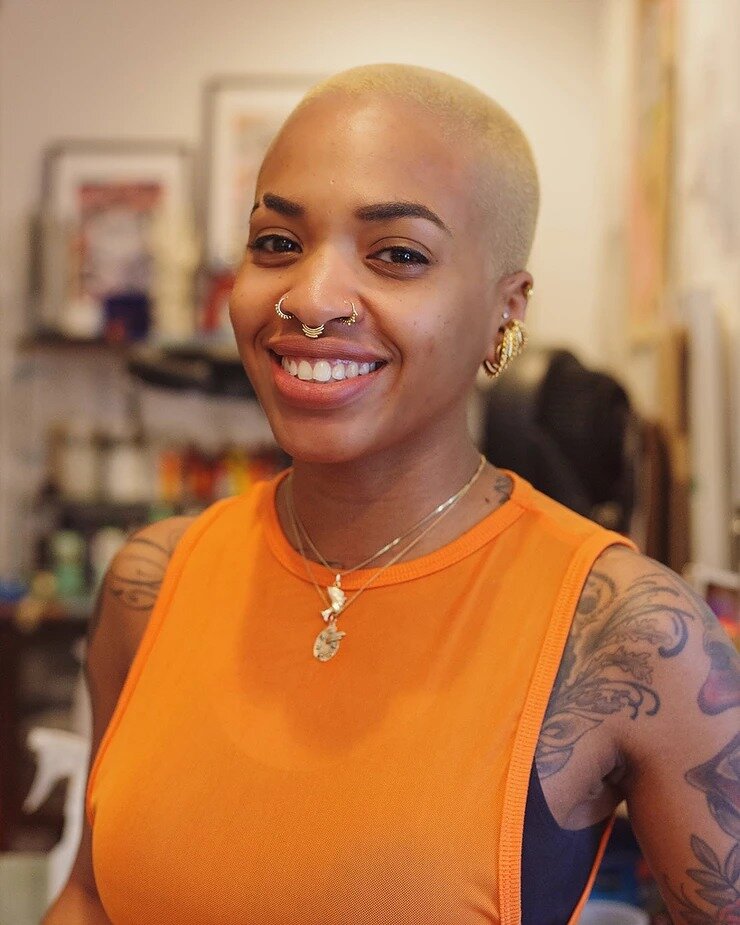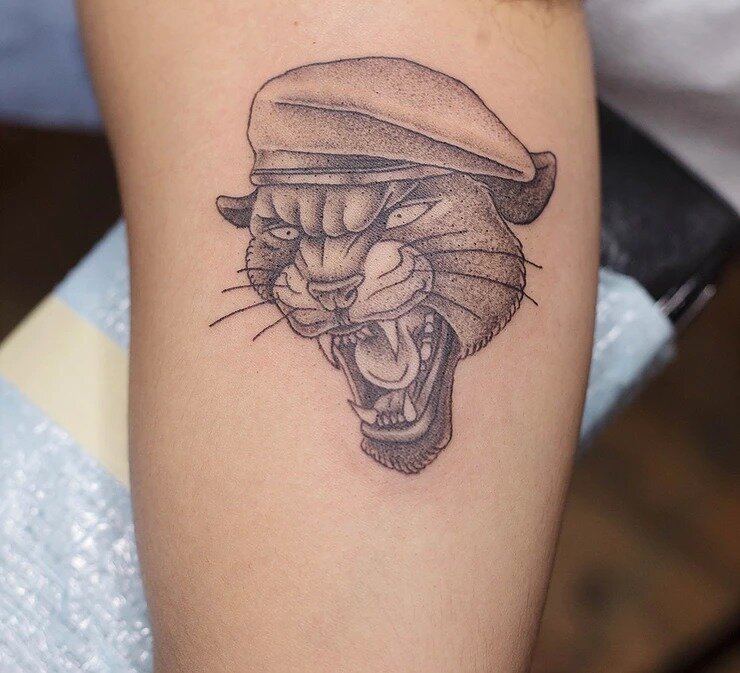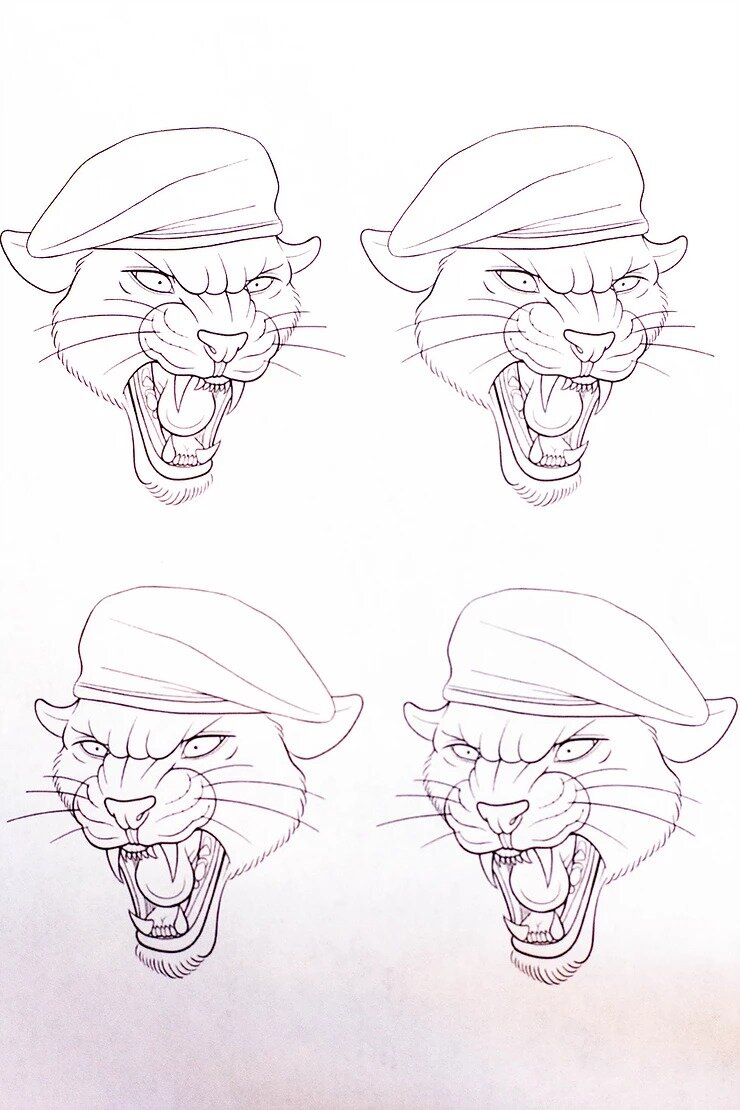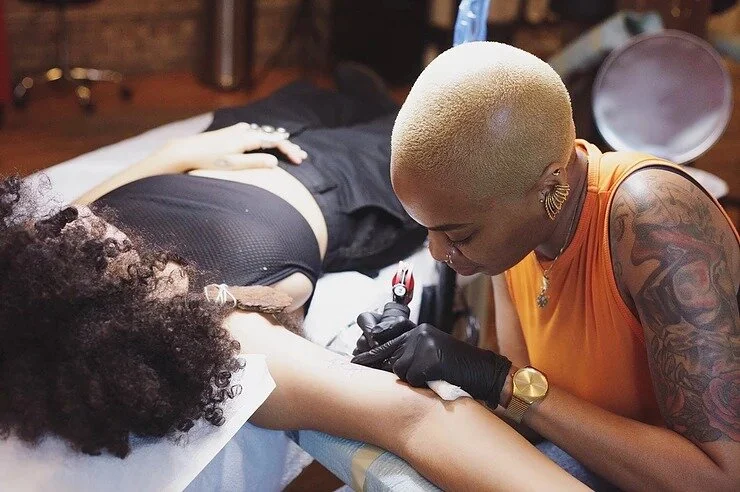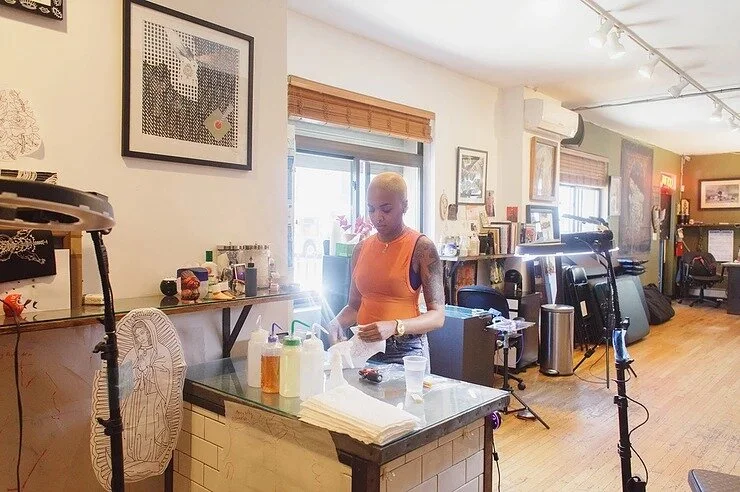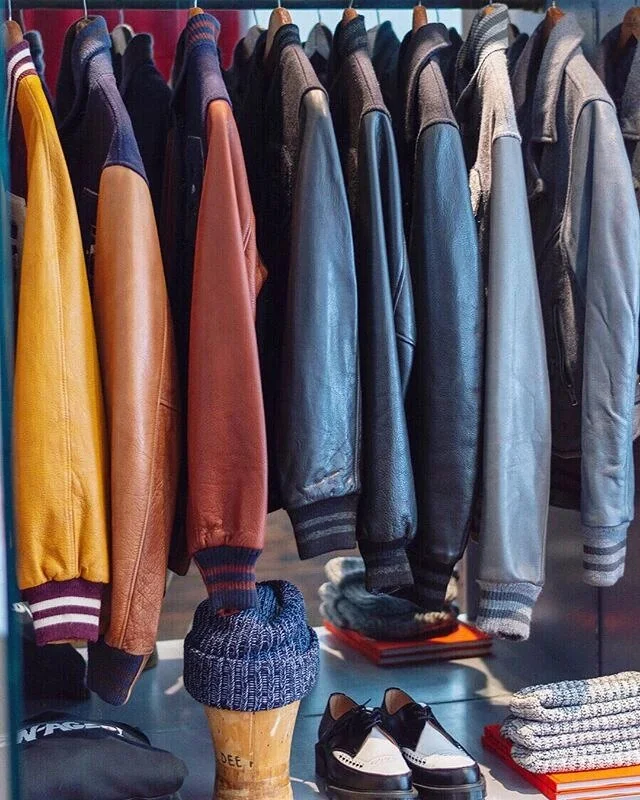The Black Panther Project
“The way tattooing came about, it’s mostly from cultures of people of color,” says tattoo artist Doreen Garner. “But with the imagery that’s celebrated in American traditional styles of tattooing, there’s a complete lack of representation for people of color — and Black people specifically — as far as their contributions to the progress of America as a nation.”
Doreen, 32, fills this void by providing specialized flash tattoos that depict Black American experiences and history. She’s inked designs including cotton blossoms, a black fist Afro pick, wagon wheel freedom quilt patterns, Tuskegee Airmen fighter jets, and a Winchester rifle honoring investigative journalist and anti-lynching activist Ida B. Wells.
In commemoration of Juneteenth, tomorrow Doreen relaunches her Black Panther Project, which from June 19 through August 5 will offer just one design: a growling panther head with a Black Panther Party-inspired beret.
“I wanted to resurrect the idea of coming together, and standing together, to be heard and be more visible,” Doreen says of the camaraderie that comes from having a shared tattoo, particularly this one. “A black panther tattoo on your body is a public declaration of, ‘I’m always gonna be down for the team.’”
In addition to fostering unity from having a shared image — Doreen envisions people with the same tattoo out at a concert or panel discussion, excitedly spotting one another — the Black Panther Project is also about reclaiming the black panther from American traditional styles of tattooing.
“There are so many associations with the black panther, as far as white people getting it because it looks like a cool animal. But for a Black person to get it, it’s really different,” says Doreen, who is offering the flash tattoo (modeled here by artist Anaka) from her workspace at Saved Tattoo in Williamsburg. “It's also been used a lot for cover-ups because it involves large amounts of black. But I like the idea of Black people getting these tattoos not as a cover up but as a declaration.”
“A lot of people are being more conscious about who gets to inflict pain on their body. They’re checking to see if there are people of color who they're more comfortable with making this image on them permanently.”
Subject matter aside, Doreen sees her work in general as a “self-healing process.” After a tattoo is etched into the flesh, she explains, the body begins to heal itself. Given her role as both the healer and the person inflicting pain, her clientele is mostly Black women who specifically sought out a Black woman tattoo artist.
“A lot of people are being more conscious about who gets to inflict pain on their body,” Doreen says. “They’re checking to see if there are people of color who they're more comfortable with making this image on them permanently.”

